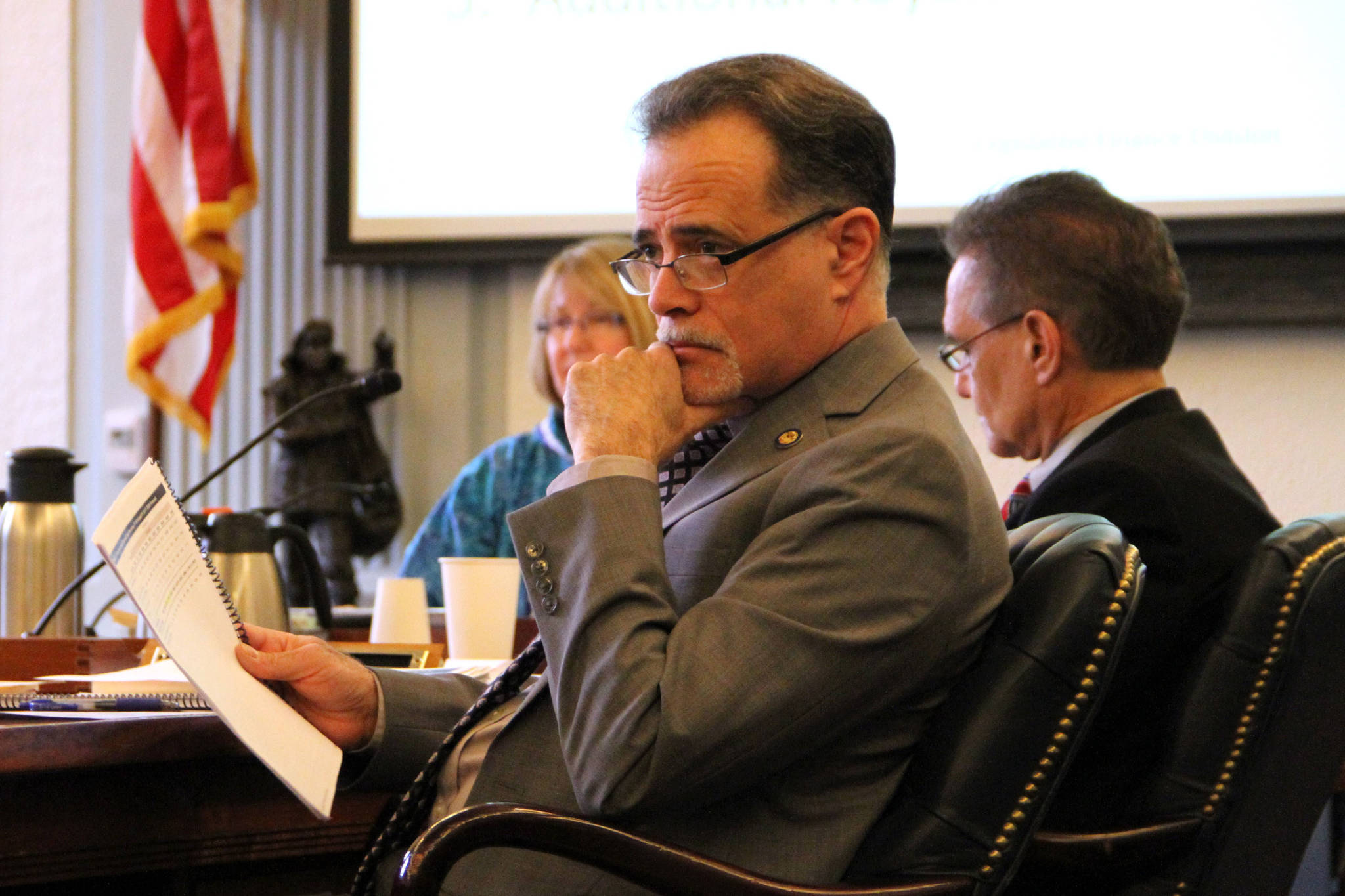In the midst of an economy-killing pandemic, when all of Alaska’s key industries are suffering, Alaskans are being asked to vote on confusing oil tax policy again this year. Ballot Measure 1 completely overhauls how we tax our state’s largest economic driver, and shoves Alaska into an economic ditch from which we might never recover. Now is the worst time to increase taxes on the tourism and commercial fishing industries, as well as on individual struggling Alaska families. Dramatically increasing taxes on anyone, including the oil and gas industry at this time would be irresponsible.
With the global pandemic still raging and our economy stalled as a result, now is literally the worst time to pass an experimental new tax scheme so complex that it can’t be explained by even the primary proponents.
I am not opposed to changing oil tax policy and consider oil taxes as a living document requiring constant reevaluation. I expect the new Legislature to revisit oil taxes in 2021. We don’t have a choice; given the size and scale of our fiscal situation, every option must be on the table. But that discussion will endure a thorough, and sometimes-tedious process with hearings, economic modeling and public testimony; the correct way to change a key economic policy laced with significant ramifications. Changing oil taxes via a ballot measure is like using a chainsaw to do knee surgery blindfolded. It’s a blunt instrument that will do more damage than good.
The worst part of Ballot Measure 1 is the lack of independent analysis and transparency offered by the proponents. Normally, when citizens want to create a new law, the burden of proof falls on them to show voters it’s wise policy. A competent campaign team would spend the time and resources to craft the ballot measure in full view of the public, ask independent experts to analyze the impacts, seek feedback from affected parties, and then communicate the findings with voters.
The yes side has done none of those things. All the work took place behind closed doors. More offensively, the ballot measure’s primary sponsor and funder, Robin Brena, admits that a group wrote Ballot Measure 1 without disclosing who they are. Alaska voters deserve to know the facts. For example, are the authors of Ballot Measure 1 Alaskans? Do they have economic credentials? Are they anti-oil activists from Washington, D.C.? We don’t know, because Ballot Measure 1’s organizers won’t tell us.
I recently debated Paul Seaton and Bob Shavelson from Cook Inlet Keeper on this very issue. Both good folks, but Bob’s vision is an Alaska without oil and gas production. A large proportion of the supporters of Ballot Measure 1 envision a “Green New Deal”, leave-it-in-the-ground type of Alaska. They see overtaxing as a method of expediting Alaska’s exit from the industry. As a person that spent 35 years in the industry prior to my retirement, I envision the opposite. I know from direct experience during the ACES years how difficult it was to draw investment into a non-competitive environment. The effects of Ballot Measure 1 will be worse.
There are decades of oil revenue available to support state services and provide great employment opportunities for our kids and grandkids. We must move forward together with the industry to ensure a bright future for state revenue, jobs, and responsible development. I want my four daughters, as well as your children to raise their families in Alaska with employment opportunities. Those opportunities will diminish without healthy partnerships with all our key industries, including the oil and gas industry.
Alaskans, please don’t fall for the over-simplified, disingenuous claims being made by Ballot Measure 1’s proponents. Bumper sticker claims are unfounded and independent data to back up their assertions is nonexistent. What may initially provide a bump in revenue for legislators to spend, will result in a long-term, dramatic reduction of billions in state revenue. With no end in sight to the economy-stalling COVID-19 crisis, we cannot afford to gamble on a risky new scheme. Ballot Measure 1 is a race to the bottom that we should all find unacceptable. Join me in voting “no” on 1.
Sen. Peter Micciche is a Republican member of the Alaska Senate representing Kenai, Soldotna, Seward, Nikiski, Funny River, Sterling, Cooper Landing, Hope, Crown Point, Moose Pass and Lowell Point.
• By Sen. Peter Micciche

